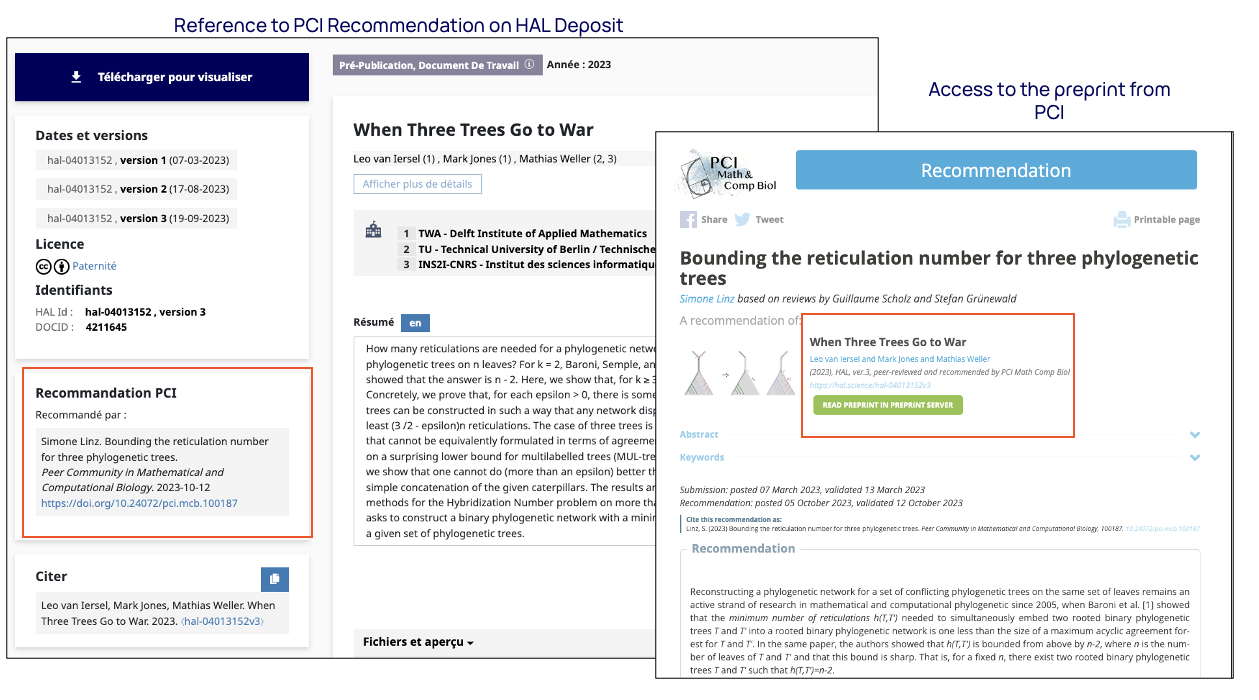If you would like to submit a preprint deposited in HAL for peer review by Peer Community In (PCI), you can now submit your document directly via the deposit form and HAL will take care of the transfer.
Open peer review of preprints
The increasingly common practice of sharing preprints is accompanied by innovations that take advantage of the open access to these manuscripts. This is particularly evident in the emergence of open peer review services, of which Peer Community In (PCI) stands out. PCI includes a set of thematic communities – currently 17 – which organize, at no cost to authors, evaluations, and recommendations of submitted preprints.
HAL is now interoperable with PCI, and the deposit form is evolving to facilitate the submission process for authors. The functionality appears at the end of the deposit form, and only if the following two conditions are met: the selected document type is “Preprint/Prepublication” and a full-text file is deposited. Thematic PCIs are presented in a drop-down list, following the Episciences journals list. The depositor only needs to select the appropriate one before saving. It is recommended to read the author guidelines before submitting the preprint.
As soon as the preprint is online, HAL automatically notifies the relevant PCI, which then takes charge of the submitted manuscript. This makes the HAL submission process simple and transparent for researchers.
In the event of a positive evaluation, the PCI recommends the preprint: the recommendation as well as the reviewers’ comments and evaluations, the editorial decisions and the authors’ responses are published on its site. The recommendation is considered a scientific contribution and can be cited separately. If the preprint is recommended by a PCI, HAL will be enriched with the bibliographic reference of the recommendation, which will be displayed on the deposit. Following the same principle, the PCI recommendation displays the preprint reference and links back to HAL.
The interoperability of the two platforms significantly improves the reader experience. It also helps to strengthen the quality and reliability of the preprints available on HAL.
HALOWIN project
HAL-PCI interoperability is the second component of the HALOWIN project, funded by the National Fund for Open Science (FNSO). It runs until the end of 2023 and it aims to improve interoperability between HAL and preprint review services. Specifically, it will develop a technical framework that enables the automated exchange of documents, metadata and notifications. The aim is not only to identify, but also to develop, deploy and test all the functionalities necessary to link HAL and Episciences on the one hand (see post), and HAL and Peer Community In (PCI) on the other.
The project is part of the international initiative launched by the Confederation of Open Access Repositories (COAR) to define open protocols and standards for linking peer-review services and open archives. It is based on the implementation in HAL of the COAR Notify protocol. Exchanges between HAL and PCI, like those between HAL and Episciences, are use cases of this protocol implementation.
In addition to simplifying and streamlining processes for researchers, the project aims to promote the HAL interoperability layer to various international peer review services. The implementation of the COAR Notify protocol in HAL also paves the way for other types of exchange focusing on different objects, such as the link between publication and research data.
